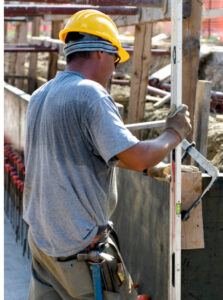
Prolonged exposure to extreme heat while working on construction sites could lead to serious injuries such as heat stress. Employees working with heated equipment such as cutting torches increase their risks of heat-related illnesses, as noted on the CDC.gov website.
Excessive heat can lead to losing body fluids or salt through dehydration and sweating. During extreme temperatures, workers with medical conditions become more susceptible to HRIs. Muscle cramps, dizziness and slower response times could reveal that an employee has begun to develop an on-the-job injury.
HRIs may require immediate medical attention
Heat stress results from a combination of intensive physical activity and working in an excessively hot environment. Protective gear and clothing also increase the body’s temperature. When the human body responds to heat stress, it attempts to adjust itself by upping its heat loss to maintain a normal temperature of 98.6 degrees.
Without a normal body adjustment, heat stress can lead to heat strain, and affected employees may begin displaying signs of HRIs. Symptoms include fainting, pain, exhaustion and heat rash. Signs of an employee experiencing a heat stroke include seizures, confusion or coma. Employees showing signs of HRIs may need to get to an emergency room to prevent a permanent disability or death.
The risk of on-the-job injuries increases during extreme temperatures
A study conducted by UCLA researchers found that the number of reported HRIs increases on days with hotter temperatures. When working in temperatures over 90 degrees, employees increase their risks of on-the-job injuries between 6% and 9%. During temperatures that exceed 100 degrees, workers increase their risks of injuries by between 10% and 15%.
On-the-job injuries often require quick medical attention. California employees may file for workers’ compensation benefits to cover their treatment and time off from work to recover.
